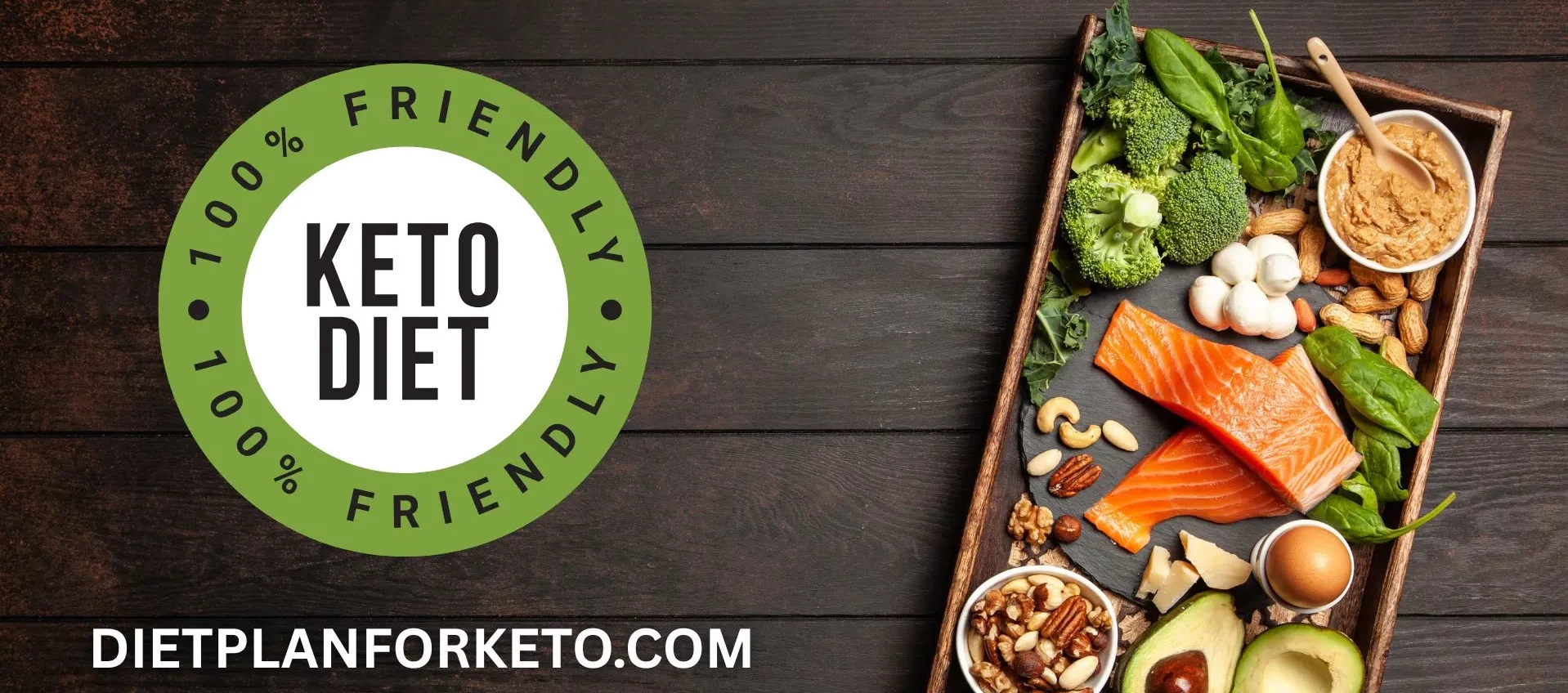1. Introduction to Keto-Friendly Cooking Oils
The ketogenic diet, often shortened to “keto,” is a high-fat, low-carb approach to nutrition that helps many people reach health and weight loss goals.
On keto, around 70-80% of daily calories come from fat, with only 5-10% from carbohydrates and the remainder from protein. Because of this high-fat intake, the quality and types of fats consumed on keto play a crucial role.
This guide is your comprehensive resource for selecting the best oils on a keto diet, including which oils to avoid, the unique benefits of each oil, and helpful tips for cooking, frying, and enhancing your meals.
With these tips, you’ll be able to choose oils that support ketosis, add flavor, and contribute to a well-rounded, nutritious keto lifestyle.
2. Best Keto-Friendly Cooking Oils
This section introduces the top keto-friendly oils, detailing their benefits, uses, and tips for getting the most out of each.
Olive Oil
- Why It’s Keto-Friendly: Olive oil, especially extra virgin, is a keto staple due to its high monounsaturated fat content, which promotes heart health and supports overall wellness.
- Nutritional Profile: Olive oil contains about 120 calories and 14 grams of fat per tablespoon, with no carbs.
- Best Uses: Olive oil shines in low-heat cooking, dressings, and drizzling over dishes. While it has a moderate smoke point, extra virgin olive oil is best reserved for low-to-moderate heat to protect its flavor and antioxidants.
- Extra Tip: Try infusing olive oil with garlic, rosemary, or chili flakes for added flavor in keto salads and sauces.
Coconut Oil
- Why It’s Keto-Friendly: Coconut oil is prized for its high concentration of medium-chain triglycerides (MCTs), which are quickly absorbed and converted to ketones, providing a fast energy source without affecting blood sugar.
- Nutritional Profile: One tablespoon of coconut oil provides around 120 calories and 14 grams of fat, with zero carbs.
- Best Uses: Excellent for frying, baking, and even adding to keto coffee (a popular trend known as “bulletproof coffee”). Its tropical flavor enhances dishes like curry, smoothies, and keto desserts.
- Extra Tip: If the coconut flavor is too strong, try refined coconut oil, which has a milder taste but retains most benefits, unlike highly processed oils.
Avocado Oil
- Why It’s Keto-Friendly: Avocado oil is a well-rounded oil rich in monounsaturated fats, vitamin E, and antioxidants. It has one of the highest smoke points, making it versatile for high-heat cooking.
- Nutritional Profile: With about 120 calories and 14 grams of fat per tablespoon, avocado oil is 100% fat with no carbs, making it perfect for keto.
- Best Uses: Ideal for frying, grilling, and roasting, and it also makes a great salad dressing base.
- Extra Tip: Use avocado oil for marinades—it helps meat stay tender while imparting a mild, buttery flavor.
MCT Oil
- Why It’s Keto-Friendly: MCT oil is a powerful addition to a keto diet. Derived from coconut oil, MCTs (medium-chain triglycerides) convert directly into ketones, which fuel the body and brain.
- Nutritional Profile: Pure MCT oil is entirely fat, with no carbs or protein, offering around 100 calories per tablespoon.
- Best Uses: Ideal for adding to smoothies, coffee, and salad dressings but not recommended for cooking due to its low smoke point.
- Extra Tip: Start with small amounts of MCT oil if you’re new to it; too much at once can cause digestive discomfort.
Ghee and Butter
- Why They’re Keto-Friendly: Ghee and butter are both keto-friendly fats rich in short- and medium-chain fatty acids, which provide energy without spiking insulin. Ghee has a slightly higher smoke point due to the removal of milk solids, making it ideal for higher-heat cooking.
- Nutritional Profile: Both contain approximately 100-120 calories and around 12 grams of fat per tablespoon. Grass-fed options are especially beneficial, containing more omega-3s and CLA (conjugated linoleic acid).
- Best Uses: Great for sautéing, roasting, and baking. Ghee’s high smoke point makes it excellent for frying, and both ghee and butter add a rich, creamy flavor to keto meals.
- Extra Tip: Use ghee for pan-searing proteins like chicken or steak to add depth of flavor without burning as quickly as regular butter.
Other Oils to Consider
- Lard and Tallow: Rendered animal fats such as lard (pork fat) and tallow (beef fat) are highly stable at high heat, making them ideal for deep frying. They add a unique depth of flavor to keto-friendly dishes.
- Macadamia Nut Oil: With a buttery flavor and a high monounsaturated fat content, macadamia nut oil is excellent for moderate-heat cooking and salad dressings, adding a unique richness to meals.
3. Keto Oils to Avoid
Choosing the wrong oils can hinder your health goals and affect ketosis. Many oils are highly processed, low in beneficial fats, and high in omega-6 fatty acids, which can contribute to inflammation. Here’s a breakdown of oils to avoid on keto:
- Vegetable Oil: Typically a blend of oils like soybean, corn, and canola, this is high in omega-6 fatty acids, which can disrupt the omega-3 balance.
- Canola Oil: While low in saturated fat, canola oil undergoes extensive processing and has a high amount of omega-6 fats, making it less than ideal for keto.
- Soybean Oil: High in omega-6 fatty acids and often genetically modified, soybean oil is not recommended for keto due to its inflammatory effects.
- Corn Oil: Corn oil is another omega-6-heavy oil that is highly refined and can promote inflammation.
- Grapeseed Oil: While mild in flavor, grapeseed oil has a high concentration of polyunsaturated fats, which oxidize easily and are not stable at high heat.

4. FAQ Section: Answering Your Keto Oil Questions
This FAQ section answers common questions about specific oils and their suitability for a keto diet.
Is Sunflower Oil Keto-Friendly?
Sunflower oil can be used sparingly on keto, especially if you choose high-oleic sunflower oil, which contains more monounsaturated fats. However, regular sunflower oil is high in omega-6 fatty acids, which can increase inflammation when consumed frequently. Verdict: High-oleic sunflower oil is a better choice if you’re using it occasionally.
Best Oil for Low-Carb Diets
The best oils for a low-carb or keto diet are those rich in monounsaturated and saturated fats, such as olive oil, coconut oil, MCT oil, and avocado oil. These oils offer a stable fat profile, support ketosis, and contribute to various cooking applications.
Is Canola Oil Keto-Friendly?
Although canola oil is low in carbs, it’s generally discouraged on a keto diet due to its high level of omega-6 fatty acids and extensive refining. Verdict: Avoid canola oil; instead, opt for more stable fats like olive or avocado oil.
Low-Carb Oil for Frying
When frying on keto, you’ll want a high smoke point and a stable fat profile. Best options: Avocado oil, ghee, lard, and tallow. These oils retain their stability at high heat and are compatible with the ketogenic diet.
What Kind of Oil Is Keto-Friendly?
Keto-friendly oils are typically high in fats and low in carbs, particularly those rich in monounsaturated and saturated fats. Keto-friendly options include olive oil, coconut oil, MCT oil, avocado oil, and ghee, which provide nutritional benefits without disrupting ketosis.
Is Olive Oil Keto-Friendly?
Yes, olive oil is a fantastic option on keto, especially extra virgin olive oil. It’s rich in monounsaturated fats, which support cardiovascular health, and contains no carbs. Best Use: Low to moderate-heat cooking, salad dressings, and drizzling over roasted vegetables.
Is Sunflower Oil OK for Keto?
Sunflower oil can fit into keto macros but is not ideal due to its omega-6 content. Opt for high-oleic sunflower oil, which has more monounsaturated fats and is less inflammatory. Verdict: Use sparingly.
Is Coconut Oil Keto-Friendly?
Yes, coconut oil is highly keto-friendly. Its MCT content makes it especially beneficial for ketosis, providing quick energy without raising blood glucose levels. Best Use: Baking, frying, and adding to keto coffee.
5. Cooking Tips and Techniques for Keto Oils
Here are some additional tips to help you make the most of your keto-friendly oils:
- Temperature Matters: To preserve nutrients, use oils with lower smoke points (like olive oil) for gentle cooking, and save high-heat oils like avocado oil, ghee, and coconut oil for frying.
- Try “Bulletproof” Blends: Mix MCT oil or coconut oil into coffee or tea for a keto-friendly energy boost. Known as “bulletproof coffee,” this technique helps curb cravings and provides steady energy.
- Infuse Flavors: Experiment by infusing olive oil or avocado oil with herbs, garlic, or chili to add extra flavor without additional carbs.
- Store Oils Properly: Keep oils in a cool, dark place to prevent them from oxidizing. Olive oil, avocado oil, and MCT oil are best stored away from light and heat.
- Use Ghee as a Butter Alternative: If you have a dairy sensitivity, ghee is an excellent substitute for butter, offering the same rich flavor without the milk solids that some people find hard to digest.
6. Conclusion
Choosing the right cooking oils is a powerful way to elevate your keto meals and support your health.
Focus on incorporating oils rich in beneficial fats, such as olive, avocado, coconut, and MCT oil, while avoiding highly processed and inflammatory oils like canola, vegetable, and corn oil.
With these tips and insights, you’ll be well-equipped to make keto-friendly choices that boost your health, enhance flavor, and keep you on track for a successful low-carb lifestyle.
Enjoy exploring new recipes and experimenting with different oils as you discover what works best for your personal keto journey.
